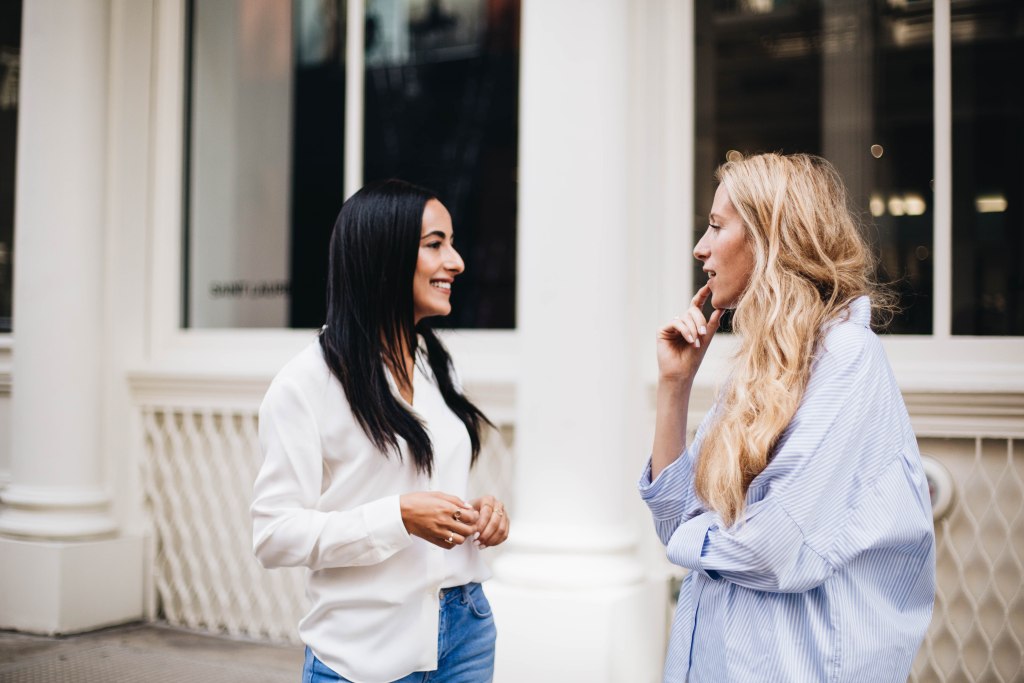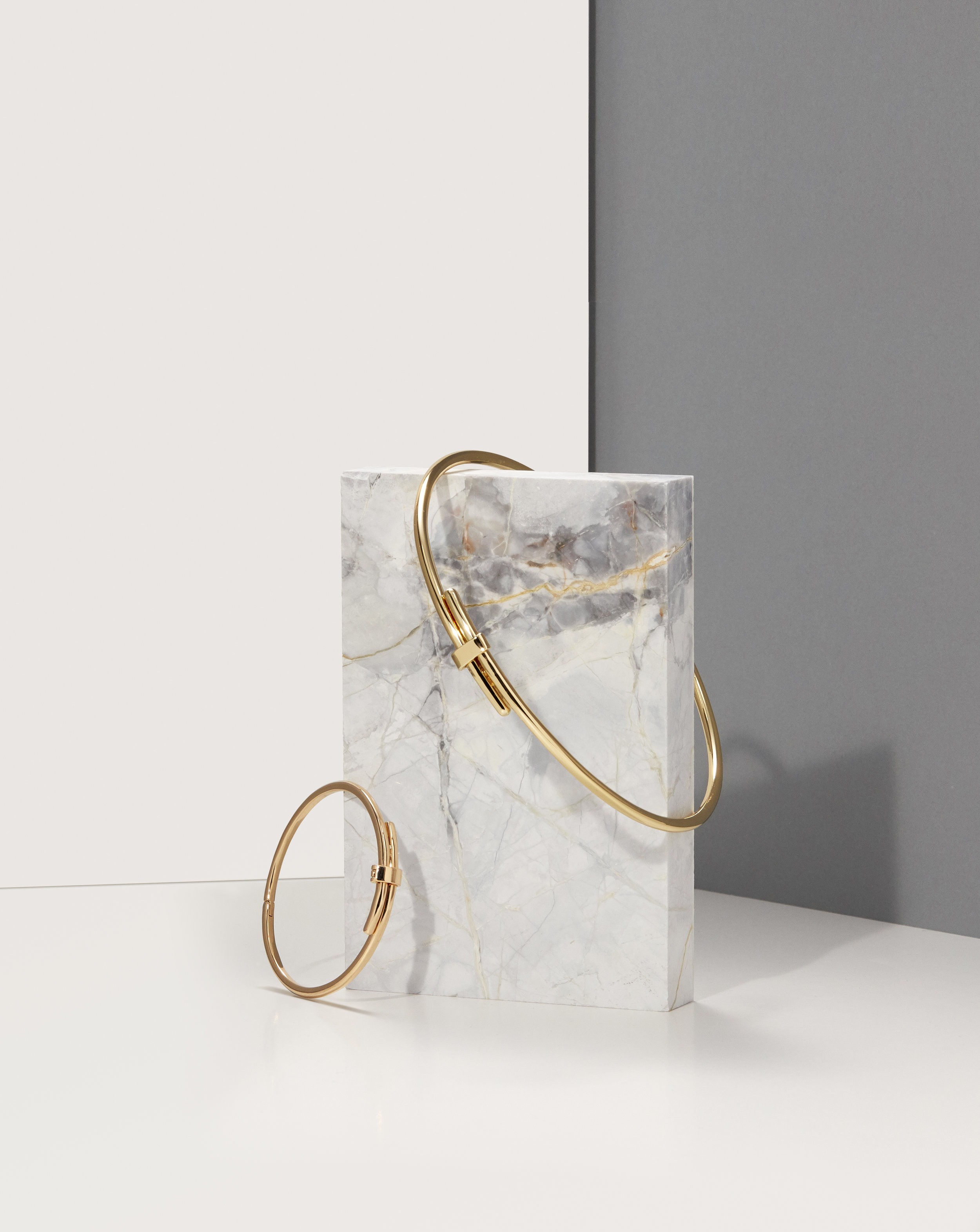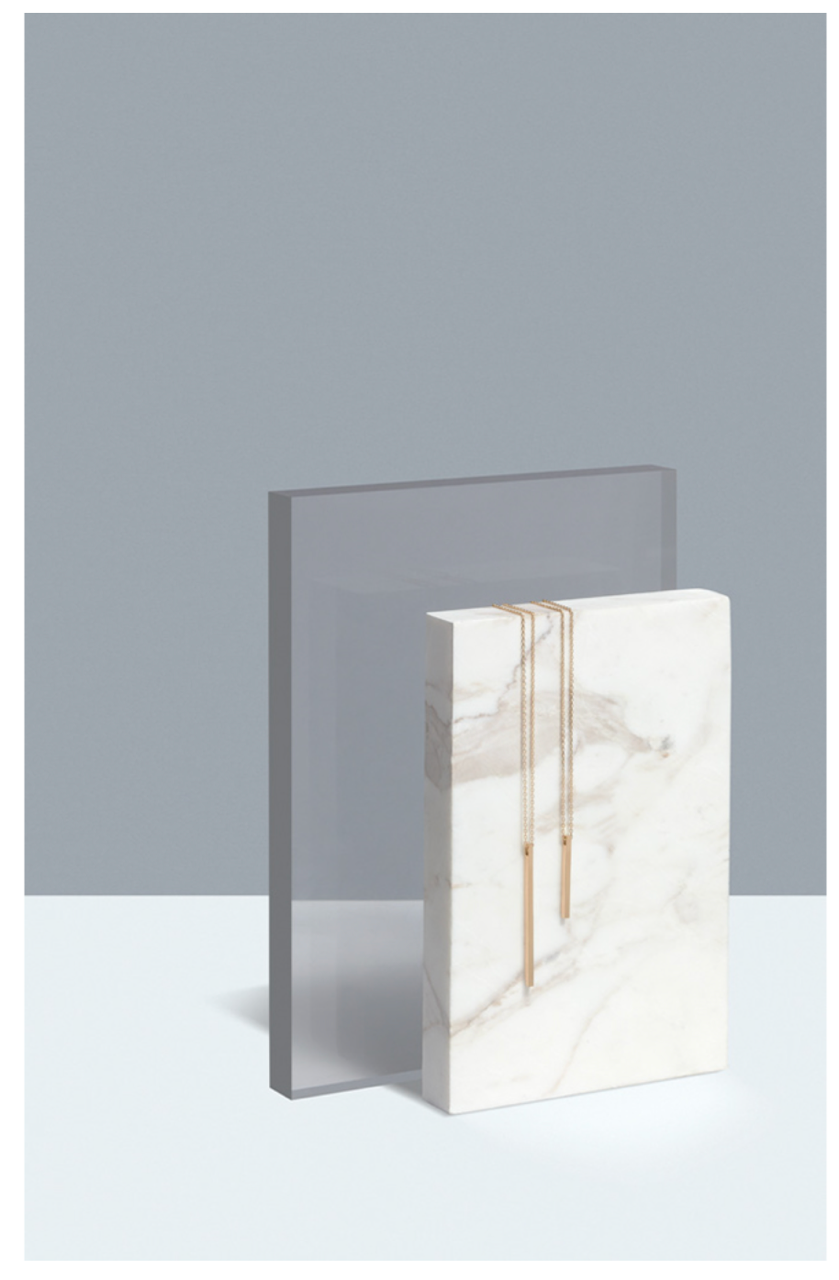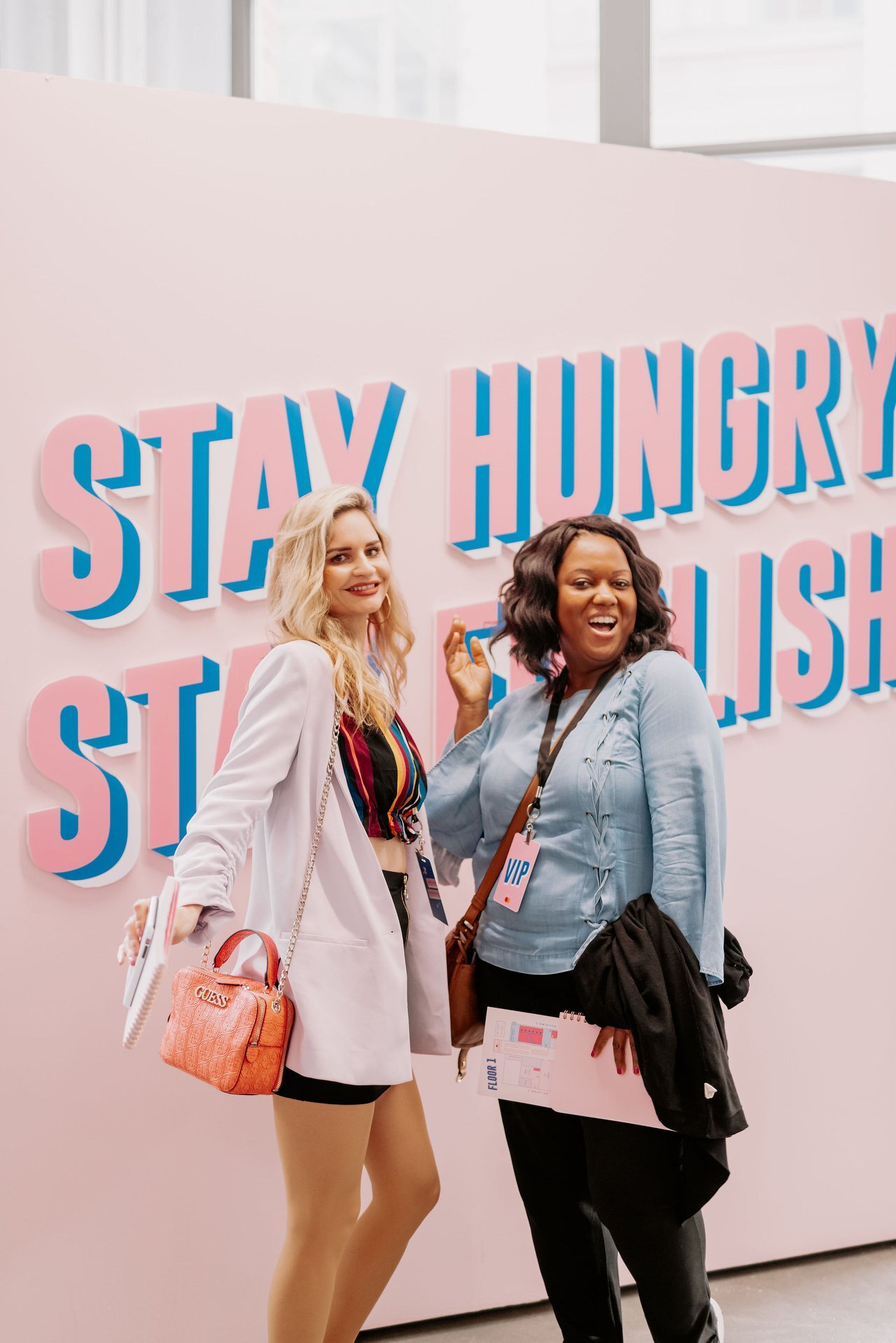Gold is element 79 and its symbol is Au. And Sophie Kahn and Bouchra Ezzahraoui, the co-founders of AUrate, have struck their own version of the shiny element with their jewelry brand. Inspired by Warby Parker, the duo launched in 2015, with the intention of offering high-quality gold jewelry direct-to-consumer.
What began as a friendship forged in the hallways of Princeton University's graduate school, where they met studying Finance, became a life-altering, business-founding partnership for the women. Both had recently moved to the US, Sophie from the Netherlands and Bouchra from France (and previously Morocco), and they connected over a love of fashion and a keen ambition to do things differently. I.e. smarter and better. "We realized that many fine jewelry brands have higher price points because of the wholesale markups and the customers’ lack of education about gold. For that reason, we decided to start a fine jewelry brand with a direct-to-consumer model, cutting out the middleman," says Bouchra.
The powerhouse duo share a remarkably complementary partnership, combining Bouchra's sharp expertise in business and passion for artisanship with Sophie's fashion industry experience and design savvy. And this month, the brand is opening 3 new retail stores in Boston, Williamsburg and DC.
So we had to know, how are they doing it? And making it look so good...? Read on.
Turning a friendship into a business relationship can be challenging. What made you both know you were up to the challenge?
Sophie Kahn: Bouchra was a Derivatives trader at Goldman Sachs and I was doing strategy & Marketing at Marc Jacobs after a stint at The Boston Consulting Group. Our different backgrounds and our shared love for fashion and business were the reasons we came up with the idea, we saw a need in the market and wanted to address it. Instead of seeing it as a challenge we saw it as an opportunity, not only to turn “a friendship into a business relationship,” but to build a strong foundation for AUrate.
Piggybacking on that a little. You’ve said that you have a complimentary partnership. So what were each of your strengths and weaknesses that made you confident in each other?
Bouchra Ezzahraoui: We both realized very quickly we wanted to do build something of our own that is bigger and more meaningful while at our corporate jobs. Our complimentary personalities and skill sets enabled us to strike the balance you find in your ideal co-founder. Sophie built a great toolkit combining fashion industry knowledge along with her consultant skills, I on the other hand really learned how to work in a very fast-paced result-driven environment that forged my business and risk taking experience. I believe you need a business partner who shares the same vision but who can bring something different to the founders’ table.
To answer the last part of your question: We’re both very impatient and that’s the common denominator that keeps the AUrate journey going.
"You need a business partner who shares the same vision but brings something different to the founders’ table."
Bouchra, from a BSc in Mathematics and an MsC in Applied Mathematics, your road to AUrate co-founder has certainly been an interesting one. You obviously bring a wealth of business knowledge to the team. So what would you tell young entrepreneurs just starting out that they need to be aware of on the numbers side?
BS: Make sure you keep the big picture in mind, know your market (all the numbers and your competition) and invest very early in your team and your product. Cashflow management is primordial but it all comes down to taking calculated risks. Your investors would appreciate that.
Sophie, similar question to you— because a successful company is not just about numbers. What should young entrepreneurs be focusing on in terms of branding and creative strategy?
SK: Use a consumer-centric approach to business – creating a brand with our consumers in mind, getting to know of what they want and appreciate, what are their preferences, instead of what we think they want.
How much of business is going by the numbers?
SK: Most of it, if not all. Our team focuses a lot on collecting data and executing on findings. We just opened 3 stores at 3 locations where our customers wanted an AUrate physical presence. We also just designed a whole collection based on customer feedback.
How much is going with your gut?
BS: ALL of it. Really. You can simulate all the possible scenarios but in a startup environment, you won’t have enough data to allocate the appropriate probabilities to those very scenarios. It comes down to following your gut and just going for it.
How did you each know that it was time to turn AUrate into a full-time gig?
SK: We had the proof of concept after a few months of operations. We saw a void in the market, we tackled it and our customers were receptive to our product and our mission. It was a no brainer.
Was the transition hard for you?
BS: Neither of us had the jewelry background nor went through the traditional fashion route. We learned how to run a business from scratch. The market structure, hiring the right talent, looking for strategic manufacturers and partners all had to be done at the same time. You have to build structure within an endless list of priorities without having the traditional set up at a corporate job. The hardest part of the transition is learning how to be patient and dealing 100% with unexpected scenarios.
What was the hardest part of leaving your jobs and striking out on your own?
The trajectory is less obvious, you become your own boss and have to take all the decisions.
What was the easiest?
SK: For me, it's having a real impact on this world. My parents are doctors, so I've always had this thing of wanting to give back. But I like fashion, so I felt very conflicted for a very long time. Now, we've got our company where we're a) helping kids read, b) creating jobs, and c) doing that all by ourselves.
How is AUrate revolutionizing the industry for the consumers’ benefit?
BS: We felt a true void in the marketplace, as we found it hard to find fine contemporary jewelry that was accessible. We realized that many fine jewelry brands have higher price points because of the wholesale markups and the customers’ lack of education about gold. For that reason, we decided to start a fine jewelry brand with a direct-to-consumer model, cutting out the middleman, empowering our customers, giving back in a transparent way and providing the same to better quality jewelry at a fair price without any concessions.
What is your hope for the company?
BOTH: We believe that the new generation of consumers cares not only about the aesthetics of the product but also its quality, how it is made and what it stands for.
It is important that we invest ourselves in more than just beautiful jewelry and business growth but we also strongly believe that true corporate social responsibility is increasingly critical in this world– we’re hoping AUrate will lead by example in a much bigger impactful way in our industry.











